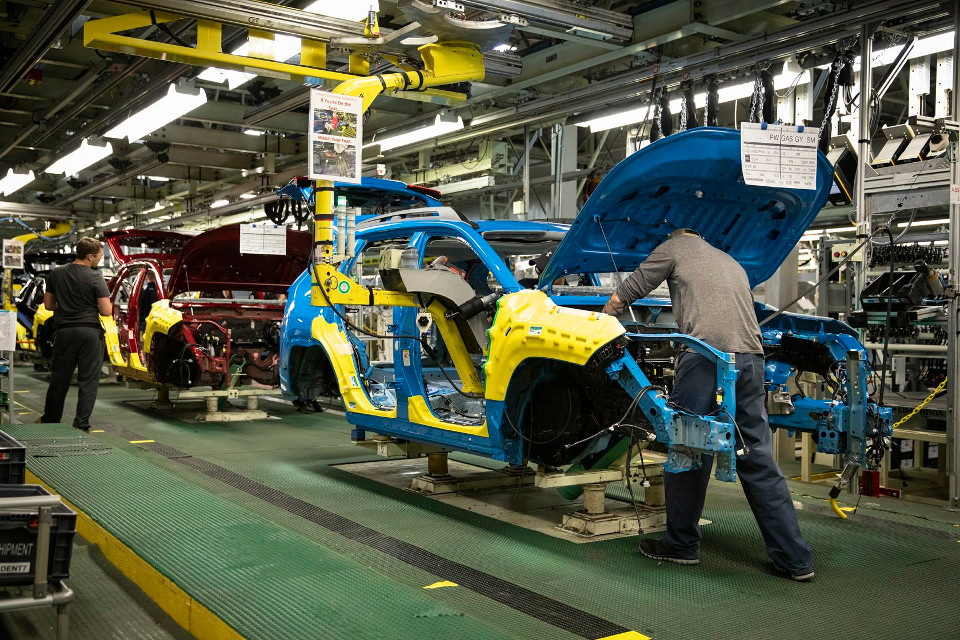Waterloo region is among the five top major Ontario economic zones measured by median employment income ($39,980), which is $3,020 more than the national average of $36,960 and six per cent more than Toronto ($37,550) which is vaunted as the province’s “financial capital,” according to data from a recent study by the Fraser Institute.
Released last week, the study found that Canada’s national capital region had the highest median employment income in the country in 2019 (Ottawa-Gatineau, $45,500) while other energy-centred census metropolitan areas (CMAs) were also ranked high.
Ontario was also home to the country’s lowest-ranked CMA (St. Catharines, $31,540).
Among Canada’s 41 census metropolitan areas, the Waterloo region was highly competitive, with its median employment income of close to $40,000.
“We love to see when our median income grows because that just creates a more vibrant and stable economy within our community itself,” said Greg Durocher, CEO of the Cambridge Chamber of Commerce.
Referring to the "grey-collar workforce," defined as positions that require some combination of physical and technical skills, such as healthcare workers, teachers, and robotics engineers, Durocher added that Cambridge has evolved into a community “where people with exceptional skills, well-educated people, are working in advanced manufacturing in our community and that's certainly raised the bar on the income levels of individuals.”
“We have a vibrant economy,” Durocher said in an interview with Cambridge Today. “There are still plenty of job openings, which is a strong signal that the economy is pretty strong.”
Durocher highlighted advanced manufacturing as one of the most important industries moving the local economy.
“Cambridge has the densest population of advanced manufacturing in the Region of Waterloo and it's a pretty critical sector for us,” he said.
“We have a very diverse workforce. We're not dependent on one sector, we're not dependent totally on the auto sector or tech sector. We have a good balance that kind of levels out all those big economic bumps.”
In fact, some top median yearly salaries measured by occupation in Cambridge are better than those in Waterloo region, according to the Cambridge Labour Market Report (April 2023) produced by FindYourJob.ca and based on more than 50 public job websites.
For instance, at the top end of the annual salary range, a transport truck driver in Cambridge makes $180,000 and, in Waterloo Region, $105,000; a Cambridge retail salesperson’s average salary is $150,000, while in the Waterloo it is $100,000.
According to the report, Cambridge last month had 3,014 active job posts and 1,742 new job posts. More than 1,213 companies were hiring, and the average posting duration was 22.2 days. Most of the jobs offered were full-time (2,528).
The top growth sectors in April based on the number of job postings were mining, quarrying, oil and gas extraction, management, educational services, transportation and warehousing, and public administration.

A Hub for Transportation
“Cambridge is a North American transportation hub and a good place to invest,” said Cambridge MPP Brian Riddell.
He recalled the recent $4 million investment partnership between Moderna and Novocol Pharma that “will create high-paying jobs for the Cambridge community,” he added.
Novocol is a sterile injectable cartridges manufacturer with over 500 highly skilled employees and has been operating in Cambridge for over 45 years.
“The highly-skilled jobs created by the project will further bolster our reputation as a community of choice to live, work and raise a family. This investment in our manufacturing sector further illustrates that Cambridge is a preferred location in North America to invest in and do business,” Riddell said.
With more than 25 years working as an employment counsellor, Margaret Penner, manager of Employment Services at Lutherwood in Cambridge, told CambridgeToday that the local employment outlook is positive.
“We're finding that the clients that are accessing our services are those with more challenges in accessing employment or keeping their jobs,” she said.
She explained that Lutherwood’s employment services include job offers, education and training. In some cases, the organization can provide the employer with a financial incentive to train the potential worker.
“Around 80 per cent of our clients will find a job,” Penner said.
Based on her experience, she said that in Cambridge, seasonal jobs like the retail and food industry are fairly stable in terms of employment.
“Construction and trades are ramping-up and they're finding their people. There are still a lot of job opportunities,” she said. However, she specified manufacturing is still finding workers: “They don't have enough individuals to be fully functioning and have a full scope of employees.”
Durocher believes that if the economy develops at a manageable pace and the tech sector gets back to humming the way it was in the pre-pandemic days “we're going to need a whole bunch of employees, and immigration is going to have to fill that gap.”
In the same vein, Penner added that “until we have come to where employers are not so desperately trying to find good employees it's going to be a little bit of a journey further to be fully back onto a new normal.”
